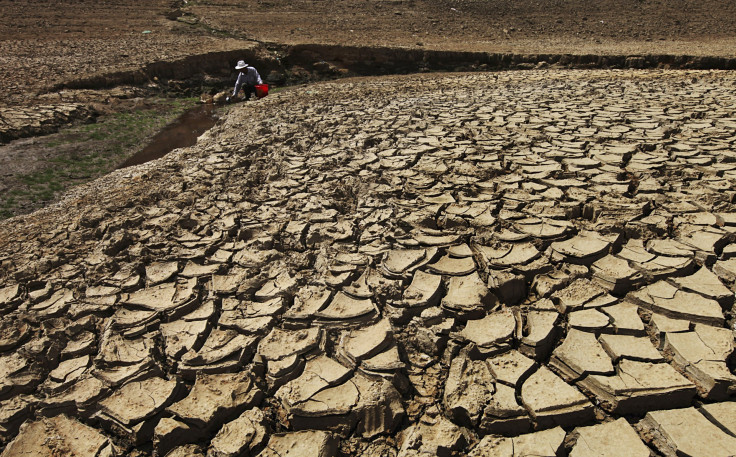Temperature On Earth To Rise 7 Degrees By 2100, Climate ‘Sensitivity’ May Be ‘Far Higher’ Than Thought

Things around here are heating up fast. In fact, Earth’s temperature is rising quicker than scientists previously projected, according to a new study of climate change and the effects of cloud cover on global warming.
According to the study, published in Nature, researchers in Australia found that by 2100, the planet could see an increase in global temperatures of more than 3 degrees Celsius, or 5.6 degrees Fahrenheit, and could even exceed 4 degrees Celsius, or 7.2 degrees Fahrenheit. By 2200, that number could double to 8 degrees Celsius.
That’s assuming global carbon emissions double in the next 50 years, something scientists have long thought will be the case. Scientists previously estimated an increase of roughly 1.5 to 5 degrees Celsius for a doubling of atmospheric carbon dioxide concentration. But by taking into account the loss of cloud cover, which plays a key role in reflecting sunlight back into the atmosphere, researchers were able to cut the uncertainty in half, concluding that the rise in temperature will be on the higher end of estimates.
“Our research has shown climate models indicating a low temperature response to a doubling of carbon dioxide from preindustrial times are not reproducing the correct processes that lead to cloud formation," Steven Sherwood, lead author from the University of New South Wales’ Centre of Excellence for Climate System Science, said in a statement. “When the processes are correct in the climate models, the level of climate sensitivity is far higher.”
As higher, drier air mixes with ocean clouds over the next century, the clouds will become thinner. Sherwood noted that a decline in ocean cloud cover, something that wasn’t accounted for before, will increase the rate of global warming.
"Climate sceptics like to criticize climate models for getting things wrong, and we are the first to admit they are not perfect, but what we are finding is that the mistakes are being made by those models that predict less warming, not those that predict more,” Sherwood said. "Rises in global average temperatures of this magnitude will have profound impacts on the world and the economies of many countries if we don't urgently start to curb our emissions."
So is this the end-all to climate change science? Are we destined for a crispy 22nd century? Not quite. As National Geographic notes, taking cloud cover into account explains only about half of the variation in estimates of climate sensitivity. There are still the cooling effects of ice cover and continental cloud cover to consider.
"So can we declare the long-running debate about climate sensitivity to be over?" climate scientists Hideo Shiogama and Tomoo Ogura of Japan's National Institute for Environmental Studies wrote in a commentary about the study. "Unfortunately not. Sherwood and colleagues' study represents a big advance, but questions persist."
© Copyright IBTimes 2024. All rights reserved.






















